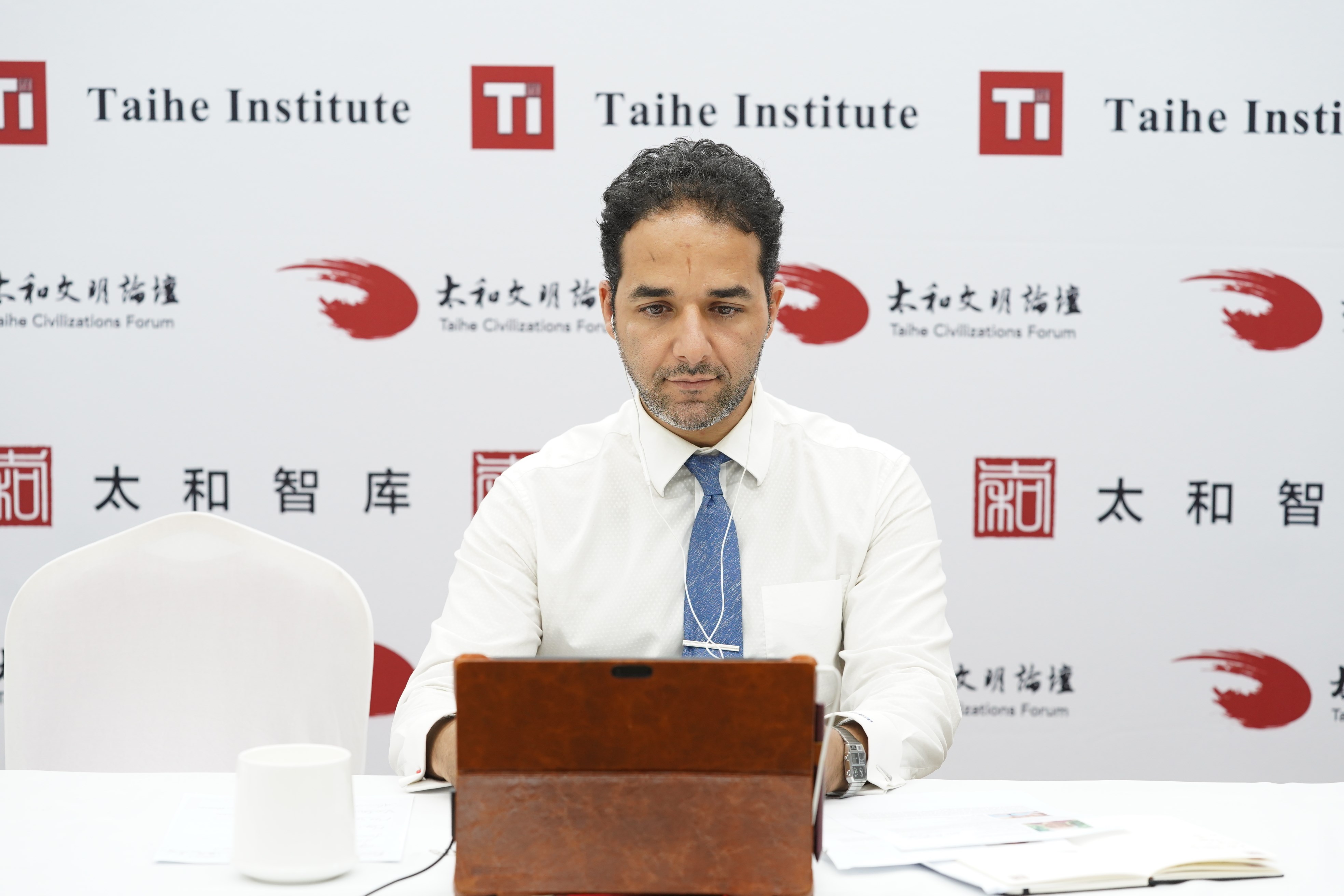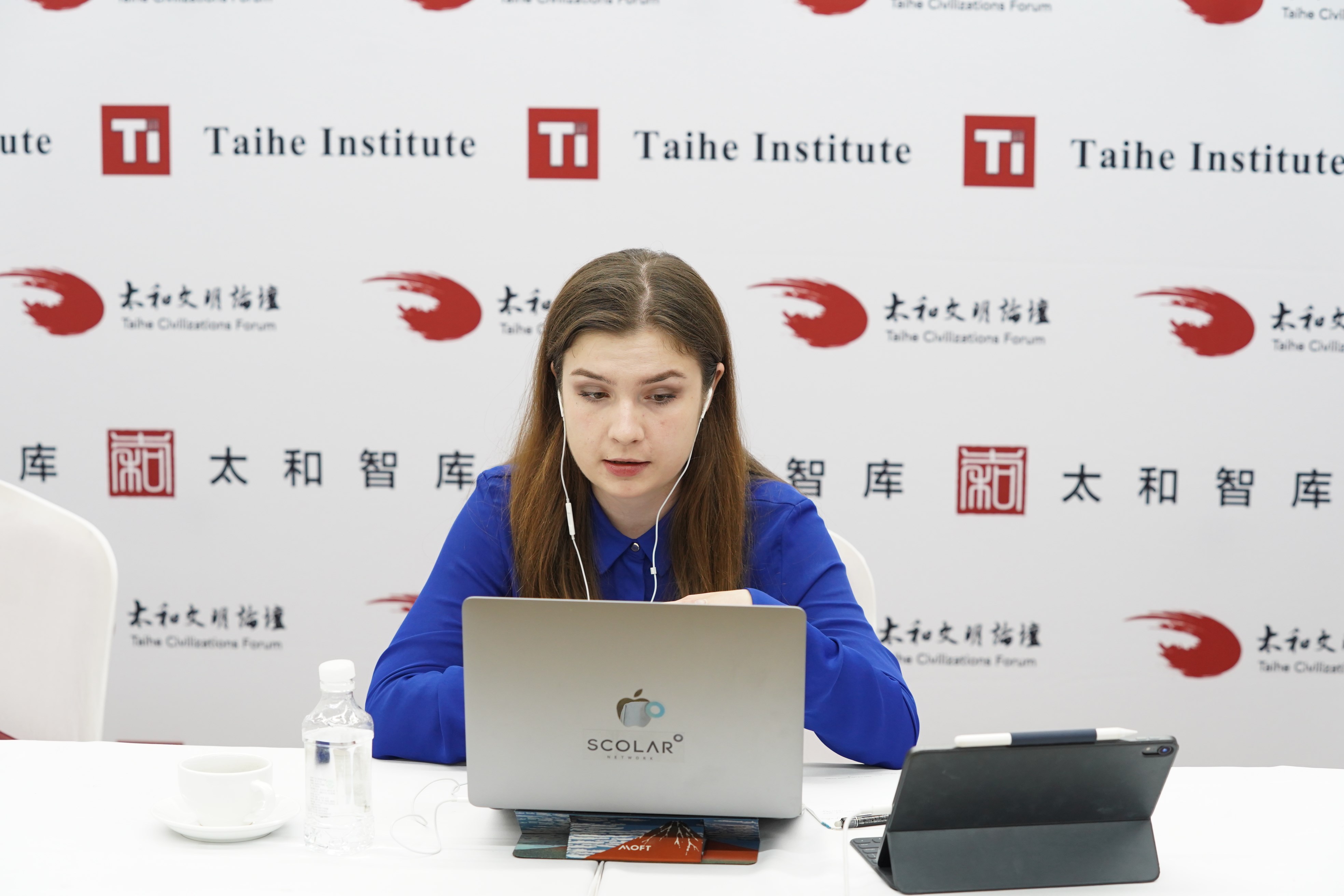The long-term threat of climate change has become more intense and the human living environment continues to deteriorate, while the sudden COVID-19 crisis has brought a huge challenge to global public health security, and will also profoundly change humanity’s way of life. Young people are a new force in promoting the development of digital technology and also an important influence on coping with global challenges. How to give full play to their creativity and vitality, and how to work together to deal with the problems facing mankind while abandoning prejudice are important issues at the moment.
On September 12, 2020, the Youth Dialogue Sub-session of the 2020 Taihe Civilizations Forum was hosted online by the Taihe Institute and supported by SCOLAR Network as a partner. Distinguished young leaders worldwide from academia and business communities gathered together in a webinar to discuss the educational reforms and global public health and environmental issues in the context of the COVID-19 pandemic.

Climate change panel moderator: Kaddour Chelabi
The COVID-19 pandemic has profoundly changed traditional education methods and scientific and technological advance has helped promote equality in education.
The pandemic has accelerated the reform of the education system worldwide. Online education, combined with offline classes, will develop together. Leonie Nagarajan, Director of the education department of the Asia-Europe Fund, believed that the epidemic has seriously challenged the traditional education system. In the post-epidemic era, whether in terms of changes to curriculum settings, teaching methods, and learning methods, or to governance and financing mechanisms, education needs to fully adapt to social development and technological progress. “Education is no longer a linear process but is in fact a lifelong and flexible learning path. Education underpins social mobility and social cohesion. We need education systems built on value, which enables learners to grow and positively influence our societies for the better: utilizing empathy, compassion and creativity to guide us through the process” said Nagarajan.
Enoch Wong, Senior Manager, Tsinghua University Office of Lifelong Education Administration (Online Education Office) stressed that the COVID-19 pandemic has accelerated our reform of the current education system. In the past few months, education methods have witnessed a change from online classes in support of offline classes to the other way around. Hardware configuration needs to be taken into consideration when classes were held online. Also, teaching students based on their own characteristics is important. Customized classes could be conducted after understanding the interests and aptitude of each student.
Ekaterina Kologrivaya, a Master’s Student at the Yenching Academy of Peking University, said that we need to combine online education with offline classroom education, but at the same time we need to not only educate in the classroom, but also consider going out of the classroom to carry out some practical education. She believed that one trend of education would be multi-class interaction, multi-class connection and the integration of the entire global education system.
Education equality needs further attention. Technological progress helps sharing educational resources. Gu Xi, Chief Marketing Officer, Higgz Technology, expressed the opinion that technology should not be limited by geography or distance. Research shows that the importance of technology has not been completely realized by people in some rural areas. What we should do now is to enable them to understand the significance of technology and to make sure that students could get access to this technology. This is not only about the use of tools and products, but about changing the education method, a way to promote educational equality.
According to Allen Tian, Founder of Xedventure, China’s online education has been developing fast and many students now take classes online. More attention needs to be paid to the education of students in remote areas during a pandemic. Educational departments provide classes distributed on television, so although putting resources on television sounds traditional, it will help many children with limited resources of mobile devices. Narrowing digital divide is our next priority. We need to ensure that all students can access basic education through online learning. Currently, many online educational institutions are open to second and third tier cities. Online education would be combined more with offline classes. Lin Ting, Chief Strategy Officer of CheChe Technology, emphasized that apart from optimizing educational resources, we should also build a more equitable education platform that is available to all, so that educational resources would be shared more effectively.

Education panel moderator: Olesya Dovgalyuk
The pandemic has prompted human beings to reflect on environmental issues which concern their survival and the world should make further efforts in dealing with climate change
Climate change has become an increasingly severe challenge, and the pandemic has highlighted the threat to the human living environment. Heidi Sevestre, Director of Science Communications at the International Cryosphere Climate initiative, stated that climate change has become a very severe problem. According to research, the rate of change of glaciers and icebergs has been unprecedented in the past 3 million years. The concentration of carbon dioxide in the atmosphere is soaring and must be controlled effectively.
Jovid Aminov, Senior Researcher of Academy of Sciences of the Republic of Tajikistan, believed that the current actions taken by the world could not alter the impact of climate change. Today’s focus on climate change is not how the climate has changed, but the magnitude and speed of the changes. If we rely on the natural decomposition of carbon dioxide, it would take hundreds of years. Even if we stop carbon dioxide emissions now, global warming would continue for decades. The carbon cycle could not be rebalanced by reducing the use of coal or natural gas. But we should note that global carbon emissions have been reduced due to the pandemic, which in a sense suggests that climate change has not caused irreversible environmental changes, and that humans need to find smarter ways to handle climate change.
Olga Krylova, Sustainability and Marketing Manager at Rusal, said that the global GDP has been reduced by 5% due to the pandemic, it would be further reduced by 7% by 2100 because of climate change. The losses caused by the pandemic could be made up, but the losses caused by climate change could not be. There is a constantly widening gap between the urgency of addressing climate change and the global efforts that has been made. Max Song, founder of Blockdynamics, said that, “The next ten years (2020 to 2030) will in fact be the most critical decade for global environmental protection in the next one to two centuries. We have spent most of the first year of this decade being forced to reflect on developments, but this has been very beneficial.”
All countries need to establish a sense of responsibility for environmental protection and take multiple measures to jointly tackle climate change. Mr. Yi-Heng Cheng, Member of the Club of Rome and a Professor at Tongji University, held that a plan 2.0 is urgently needed to change the trajectory of the future. Resolving the contradiction between energy conservation and emission reduction and economic development is the same for both developing and developed countries. It is our responsibility not to repeat past mistakes and develop this kind of awareness. As he pointed out, “When we talk about new technologies and their consequences, we must also consider their impacts on society. People need to consider how they will deal with the changes that new technologies bring us.”
As Ms. May Mei, Founder and Executive Director of GoalBlue, stated, the pandemic has made people more aware of the importance of the environment and health. She added, “The service industry should educate consumers and seek their support in reducing plastic usage. We also hope take-out packaging can support and encourage these approaches. We want to encourage restaurants to offer more environmentally friendly packaging, or even provide financial incentives to encourage and support consumers to adopt a greener life.”
Participants reached a basic consensus through in-depth online discussions. That is, the COVID-19 pandemic has been a wake-up call to humanity living in a deteriorating environment. It has promoted profound changes in the world in education and other fields through ideas and technological advances. Facing the critical moment of environmental degradation, changing world landscapes and technological revolutions, young people should firmly uphold the missions of protecting human health and promoting sustainable development, while actively embracing the digital era and working diligently with others, so as to make their contribution to building a community with a shared future for mankind and promoting the harmonious and healthy development of the world.
-

- The U.S-China Relations Can Be Restarted 13 October , 2020
-

- China and U.S. Enter ‘Protracted War’ 13 October , 2020
-

- The World has Ushered in a New Era of Multilateral Framework... 13 October , 2020
-

- 2020 Taihe Civilizations Forum Content Highlights 17 December , 2020
-
2020 Content Highlights
-

- Zheng Ruolin Senior Fellow of Taihe Institute; Senior Journalist of Wen Wei Post.
-

- Chu Yun-han Professor at the Department of Political Science at National Taiwan...
-

- Zou Ming Vice President of Phoenix New Media Ltd. ; Chief Editor of Phoenix New Media...
